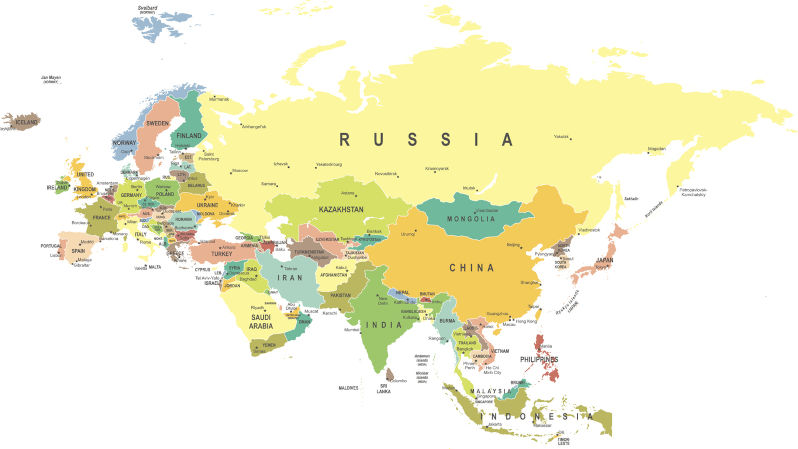National security after Russias "special military operation: Kazakhstan and China
January 26, 2023
In the wake of Russian President Vladimir Putin’s announcement of a “special military operation” in Ukraine, Central Asian countries, including Kazakhstan, have been reevaluating their foreign policy. These nations are seeking to strike a balance between their relationship with Russia and their engagement with other countries and international organisations.
Central Asian countries, including Kazakhstan, have traditionally been politically and economically dominated by Russia. Kazakhstan, in particular, shares the longest land border with Russia and has been a part of various Russia-led unions, including economic, political, and military-based organisations. However, as the country marks the anniversary of the “Qandy Qantar” events of January 2022, also known as “Bloody January,” it is becoming increasingly clear that Kazakhstan is charting a new course in its relations with other states.
The “Qandy Qantar” events were a massive protest that destabilised the country and marked the largest public uprising since Kazakhstan’s independence. The protest began as a peaceful gathering but quickly escalated into a violent conflict with police and military forces, resulting in many deaths. The official government was on the brink of losing control of the state. This event has brought the attention of the world to Kazakhstan and its foreign policies, and it seems that the country is trying to find a new balance in its relations with other countries and international organisations.
The officials in Kazakhstan had to invite Russian-led CSTO troops to the country in the aftermath of the “Qandy Qantar” events in order to “protect state buildings.” However, this move was not only about physical protection. The official support of Moscow has always been a crucial aspect of the president’s authority among politicians. By allowing Moscow to “protect state buildings,” the president was able to send a clear message that he had the official support of the Russian government.
Despite this, the country is becoming increasingly suspicious of its “good” neighbour, particularly in the wake of Russia’s invasion of Ukraine. Society is now more alarmed about the potential plans of the Russian authorities related to Kazakhstan. Furthermore, there have been sharp attacks from chauvinistic Russian politicians claiming that Kazakhstan might also experience the same fate as Ukraine. They argue that the Russian-speaking population and ethnic Russians are discriminated against and need help. However, the official authorities deny these claims and insist that the official position of Moscow has always been to see Kazakhstan as a partner in the region.
In 2022, Kazakhstan faced significant challenges in ensuring its national defence. One major event was the official visit of Chinese leader Xi Jinping to Kazakhstan. During the visit, China expressed support for Kazakhstan’s sovereignty and territorial integrity and emphasised the importance of preserving national stability. This statement may have also been seen as a reminder to Russia. Another event was the official visit of the President of Turkey to Kazakhstan. Turkey, as a major military power in NATO, has strong connections with Kazakhstan, and the two countries are members of Turkic organisations and share historical ties. The President of Turkey also emphasised support for Kazakhstan’s sovereignty and territorial integrity and the two countries agreed to collaborate on constructing drones in Kazakhstan.
Kazakhstan has had a long-standing alliance with Russia. Still, the events in Ukraine in 2022 known as the “special military operation”, have caused Kazakhstan to re-evaluate its relationship with Russia. The annexation of Crimea by Russia and the ongoing conflict in eastern Ukraine have raised concerns about Russia’s intentions and actions towards its neighbours. This has created a dilemma for Kazakhstan, as it cannot fully support Russia’s position without risking its reputation as a country that pursues a multi-vector foreign policy and the possibility of economic sanctions. At the same time, it cannot fully distance itself from Russia due to the close economic, political and cultural ties between the two countries. As a result, Kazakhstan has sought to maintain a delicate balance in its foreign policy and continue to engage with both Russia and other countries.
